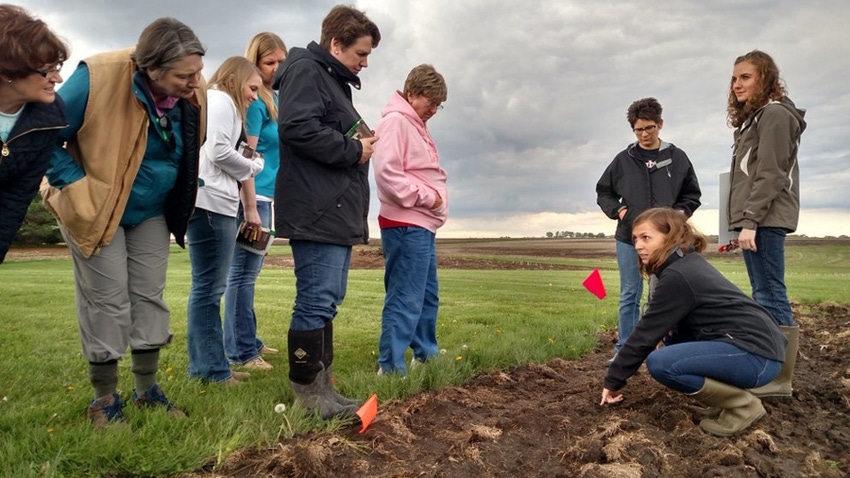April 1, 2024

Helping landowners incorporate soil health and conservation practices into their farmland management is the focus of a new program by Iowa State University Extension. Experts on conservation, agronomy, financial and legal topics will assist owners in making beneficial decisions for their land.
The Landowner Education Program is intended for Iowa landowners who want to learn about soil health practices, understand relevant financial and legal considerations, and build a supportive network of peers and experts.
Landowners can apply through April 19 to be part of the first cohort. Participants will be organized into small groups according to their awareness, motivations and challenges to conservation adoption.
Each cohort will have the opportunity to attend six in-person educational events taught by ISU Extension specialists, with the goal of showing how conservation practices can be made viable on the Iowa landscape.
Benefits of program
“The program is grounded in the concept that people make decisions based on many complex motivators and that their time is valuable,” says Catherine DeLong, water quality program manager with ISU Extension. “In other words, not everyone is the same, and to use their time effectively, we need to adapt how we talk about conservation based on who we’re speaking to.”
In Iowa, 58% of farmland is leased, and landowners play a key role in conservation practice adoption. According to the 2018 Iowa Farm and Rural Life Poll, 42% of respondents agree or strongly agree that they are less likely to use cover crops on rented land.
The program will help explain how landowners can work with tenants to provide mutually beneficial opportunities to implement conservation practices. There is no cost to participate, but you must sign up and register ahead.
Participants will attend six educational events, each two to three hours long, between June and August:
opening event and introduction
first conservation workshop
second conservation workshop
workshop on legal and tax considerations
communications workshop
final session to complete program
Who should apply?
The first year of the program will target landowners whose land is primarily in row crops in central and north-central Iowa, especially within the Des Moines River Watershed. All knowledge levels are welcome. Space is limited, so applicants must apply before April 19.
“The program takes into account that there are many steps between interest in conservation practices and actual conservation practice implementation,” says Julia Baker, natural resources program specialist with ISU Extension. “This can include discussing with family members or other land decision-makers, speaking with a lawyer to adapt or create a written lease, and discussing practices with a tenant including cost-share of any expenses, equipment needs, etc.
“We know landowners care about their land and value stewardship, but they may need help navigating the financial, legal and relational aspects of transitioning to conservation land management,” Baker says.
More information is available online, including a short assessment to see if the program is a good fit for the landowner. If you have questions that aren’t answered on the website, contact DeLong at [email protected] or Baker at [email protected].
About the Author(s)
You May Also Like






